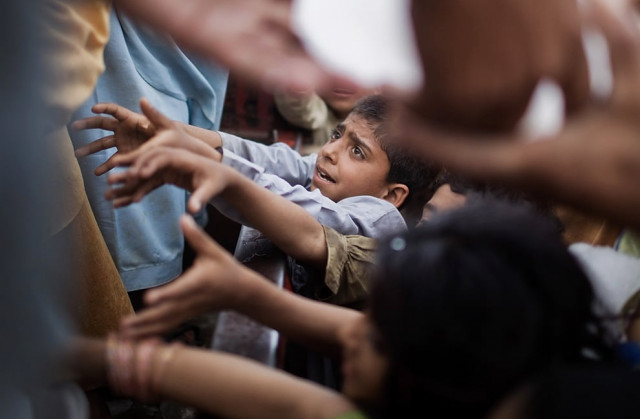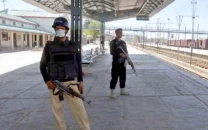Child rights: ‘Malnutrition costing more than energy crisis’
Civil society discusses how to promote right to adequate food and nutrition.

The event aimed to promote adequate nutrition as a basic human right by raising awareness among civil society organisations.
Chronic malnutrition costs the economy an estimated 3% of GDP, which makes it a bigger problem than the energy crisis, which costs 2% of GDP, according to Dr Tausif Akhtar Janjua, the director of the Micronutrient Initiative.
“The noise about the energy crisis is huge, while on malnutrition there is almost nothing,” said Dr Janjua, speaking at a consultative session on Monday organised by the Development Partners for Nutrition (DPN) in Pakistan and the Child Rights Movement (CRIM) in the Punjab. He said that chronic malnutrition levels in Pakistan had not changed for 40 years.

The event aimed to promote adequate nutrition as a basic human right by raising awareness among civil society organisations.
“Nutrition was never considered a priority area and was always treated as a part of health care. However, we now know that health interventions alone cannot deal with the issue of malnutrition” said Imdad Naqvi from the CRM.
“Today, nearly half of Pakistan’s children and mothers suffer from under-nutrition. The situation is worse than that in much of sub-Saharan Africa,” said Dr Janjua.
“More than 350,000 children die in Pakistan every year before their fifth birthday and 35% of these deaths are due to malnutrition,” said Arshad Mahmood, director for advocacy and child rights governance at Save the Children.
He emphasised the importance of human rights organisations in addressing the issue of malnutrition in Pakistan. “Human rights and nutrition advocates share a primary concern for the individual human being and an interest in the role of public action in supporting a full and active life of dignity for all human beings. Adequate food and nutrition is the right of every citizen as enshrined in Article 38 of the Constitution of Pakistan, which states: ‘The State shall provide basic necessities of life, such as food, clothing, housing, education and medical relief,’” he said.

The government enacted the Punjab Protection of Breastfeeding and Young Child Nutrition (Amendment) Act 2012, but the rules of application for the law was and the Infant Feeding Board were yet to be set up. The government should also finalise and notify the Provincial Nutrition Strategy, Mahmood said.
Dr Akhtar Rasheed, the provincial coordinator for the Lady Health Workers Programme, briefed the participants on the government’s attempts to improve the nutrition situation.
He said that the government would encourage birth spacing and iron supplements in the high-risk districts in southern Punjab. The provincial government is committed to reducing growth stunting from 39% to 34% and wasting from 14% to 12%, and increasing exclusive breastfeeding from 22% to 40%, by 2016.
The presentations were followed by discussion about how civil society can effectively advocate for the right to adequate food and nutrition and implementation of laws like the Punjab Protection of Breastfeeding and Young Child Nutrition (Amendment) Act 2012. The participants agreed to move forward with a joint action plan at the policy and implementation levels.
In his concluding remarks, Dr Tahir Manzoor of Unicef emphasised the importance of the role of civil society and media in highlighting the issue of nutrition and advocating for the implementation of policy and legislation.
Published in The Express Tribune, July 9th, 2013.



















COMMENTS
Comments are moderated and generally will be posted if they are on-topic and not abusive.
For more information, please see our Comments FAQ